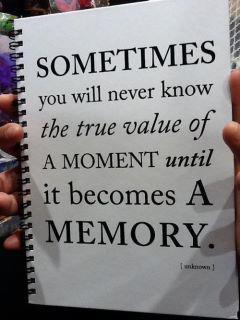We all have good memories and bad memories. Both can be equally vivid. Both can seem viscerally real when they flash back into your mind. Memories can trigger a whole series of emotional, physiological and behavioural responses over which you seem to have little control. Therefore memories seem to us to be powerful. And they are – if we let them.
But the vital thing to bear in mind about memories is that they are not facts, they are stories. Stories that powerfully affect the narrative of your life.
As psychologist Charles Fernyhough pointed out in his fascinating piece in The Guardian last week (www.guardian.co.uk/lifeandstyle/2012/jan/13/our-memories-tell-our-story?), “When you ask people about their memories, they often talk as though they were material possessions, enduring representations of the past to be carefully guarded and deeply cherished. But this view of memory is quite wrong. Memories are not filed away in the brain like so many video cassettes, to be slotted in and played when it’s time to recall the past.”
Autobiographical memories are stitched together from information stored in many different neural systems, which makes them susceptible to distortion. In the realms of memory, the fact that it is vivid doesn’t guarantee that it really happened.
In storyboarding an autobiographical memory, says Fernyhough, the brain combines fragments of sensory memory with a more abstract knowledge about events, and reassembles them according to the demands of the present. Memory is endlessly creative, and on one level it functions just as imagination does.
“That’s how I think we should value memory,” says Fernyhough, “as a means for endlessly rewriting the self. To emphasise the narrative nature of memory is not to undermine its value.”
So if you have a vivid memory, say, of your first attempt at swimming on your own or riding a bike, don’t let it bother you that you have probably got some of the details wrong. It might be a fiction, but it’s your fiction. Treasure it but understand that it’s just a story that your brain has written in service of your ego self.
The same must be applied to painful memories. They serve a purpose – perhaps to alert us to the reality that we are holding on to unexpressed emotions – but they are just stories too. We’ve all met people who want to tell you their life story within minutes of meeting you – the sort of people who define themselves by their suffering, their victimhood, their trials and tribulations.
Next time it happens, smile to yourself. Memory makes storytellers of us all.

Leave a Reply